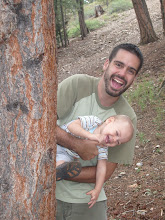I wish law makers and makers of educational policy makers would read this article and use a bit of the common sense it offers. There is no "certainty" when it comes to students, and there is no mold into which every student will fit. "...being so situated is the most important thing we have in common" (409). NCLB has created a mold into which all students MUST fit, or else...
But that isn't reality. That isn't even utopia or something to aspire to, that's boring. I don't want robots in my class, I like having different personalities and ideas and challenges in the classroom and guess what, that's how the rest of the world outside education works as well.
Though I am an opponent of NCLB, I have often defended the law and the types of tests given because right now, they are the only way to collect data on ALL students, disaggregate the data, and compare student learning (or teacher instruction). But should all students be assessed the same way? Should students in Las Vegas be taught and assessed in the same way as students in small town Pennsylvania?
Yes, I can see the benefits for a standard curriculum to a certain extent, but should students from inner city school districts be held to the same standards as students from higher socio-economical neighborhoods? That is a question that can, and maybe should, be discussed at great length. Though arguing against it, Bizzell still concedes "there is no way to escape all discourse communities, stand outside them and pronounce judgment" (408).
Having such a large base of students (millions and millions), it is very difficult (even impossible) to create ideological perfection. Maybe that's why according to the constitution, education and educational funding isn't guaranteed at the federal level, but at the state level. NCLB is a federal program, so technically, is it constitutionally legal?
Subscribe to:
Post Comments (Atom)

No comments:
Post a Comment